The Complete A-Z of Solar System Terminologies 2021
Solar energy is the most resourceful and perpetual source of energy. It is then imperative that new technologies are being introduced to harness it to its fullest. However, with it still being a relatively new scope of technology, there are only a handful of people telling its functions and terminologies apart.
For this article, we will be doing an A-Z of the entire solar system terminologies. So you’re to walk out well-informed after you’ve been through the article.
SOLAR SYSTEM TERMINOLOGIES
Solar System Terminologies A
Alternating Current (AC)
It is the type of current that changes its magnitude and periodically reverses its direction. Your electrical devices use this current. For example, the solar panels produce Direct Current, which your solar inverter converts to AC to feed it to the grid.
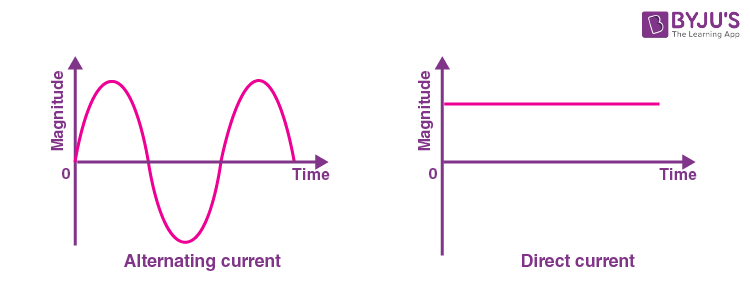
Alternative Energy
Non-fossil fuels or non-nuclear-based sources of energy are all alternative sources of energy. Likewise, all the perpetual sources of energy like Solar, Wind, Hydro are alternative energy sources.
Ampere
It is the SI unit of current. When you multiply Amps to Volts, you get Watts — the power generated by the system.
Solar System Terminologies B
Battery (Solar Battery)
It is a system-specific device used in off-grid solar systems. It stores the produced power to feed it to the devices. Off-grid systems are independent of the grid.
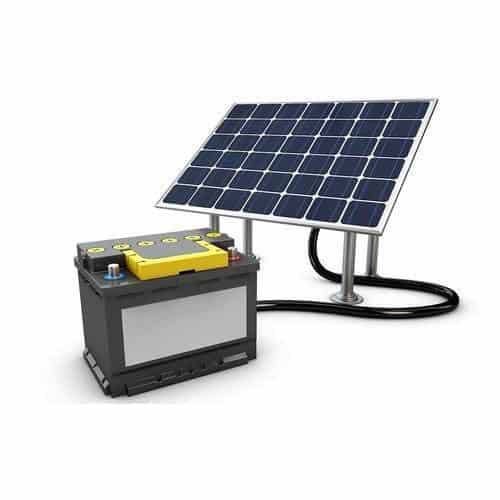
BOS(Balance of System)
BOS is the complete set-up of a PV system other than the solar panels. All the other components like wiring, cables, inverter, battery bank and chargers.
Solar System Terminologies C
Cables (AC and DC)
The AC and DC cables are all different in their designs and purpose. AC is for the appliances and DC for the PV system. Their wattage also varies.
Charge Controller
It is a protective device that regulates the charging and discharging of the batteries. It is also an off-grid system-specific device.
Cut-off Voltage
It is the voltage at which the charge controller stops the discharge of the battery.
Solar System Terminologies D
Direct Current (DC)
It is the type of current that is stationary in magnitude and has a unitary direction. For example, the current produced by the solar panels is of DC type.
DISCOM
It is the company operating the electrical ecosystem in your area. DISCOMs own and distribute wires and poles and are responsible for delivering electricity to your household. They’re technically like your ISPs, except they deal with electricity.
Distribution Boxes
The ACDB and DCDB are the SPV protective devices to protect the system from the AC and the DC sides, respectively.
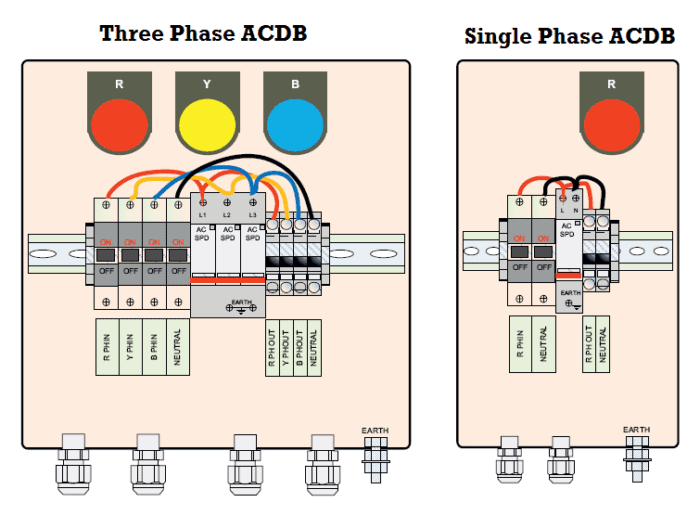
Doping
It is the process of adding impurities to the silicon (or other metalloids). Pure semiconductors cannot conduct electricity. In solar panels specifically, silicon is doped with P-type impurities (those with 5 electrons in their valence cell, preferably Phosphorus)
Solar System Terminologies E
Earthing
Earthing is the type of wire connected to the ground itself so that the electricity would flow into the earth in the case of faults.
Earthing Material
Earthing kit varies in accordance with the wattage of the panels. AC and DC sides each require different earthing.

Efficiency
No electrical device can convert 100% of the input to productive power. Solar panels are some of the least efficient appliances. The best solar panels only convert around 20% of the incident radiation to the required energy.
Solar System Terminologies F
Feed-in-tariff (FiT rates)
FiT is the rate at which your DISCOM pays you for every extra unit of power your system ends up exporting to the grid. The monitoring is done through net metering.
Solar System Terminologies: I
Inverter
It is an essential constituent device of solar systems, right after the solar panels. Inverters convert the DC produced by the system to AC and then feed it to your grid. Depending on the type of inverters, your system is of two types:
On-grid Solar System
Off-grid Solar System
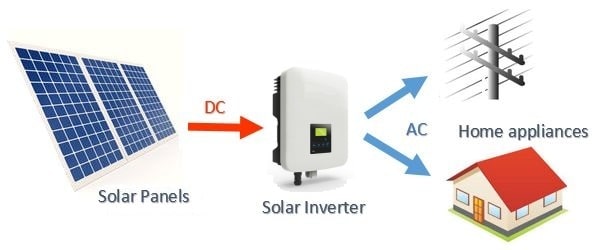
Solar System Terminologies K
KiloWatt-hour
Most commercial appliances make use of this unit of energy instead of the conventional joules. For example, 1 kWh means the amount of energy on the usage of 1000 W power for 1 hour.
Solar System Terminologies L
Lightning Arrester
It is a protective device to prevent the system from the effects of lightning by diverting it to the earthing.
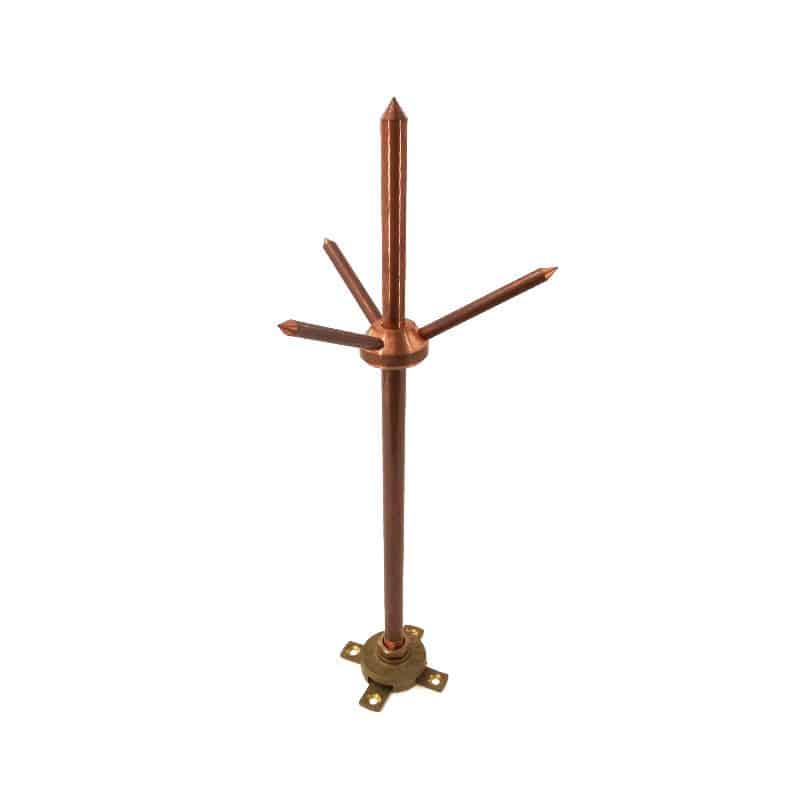
Solar System Terminologies M
MC4 Connectors
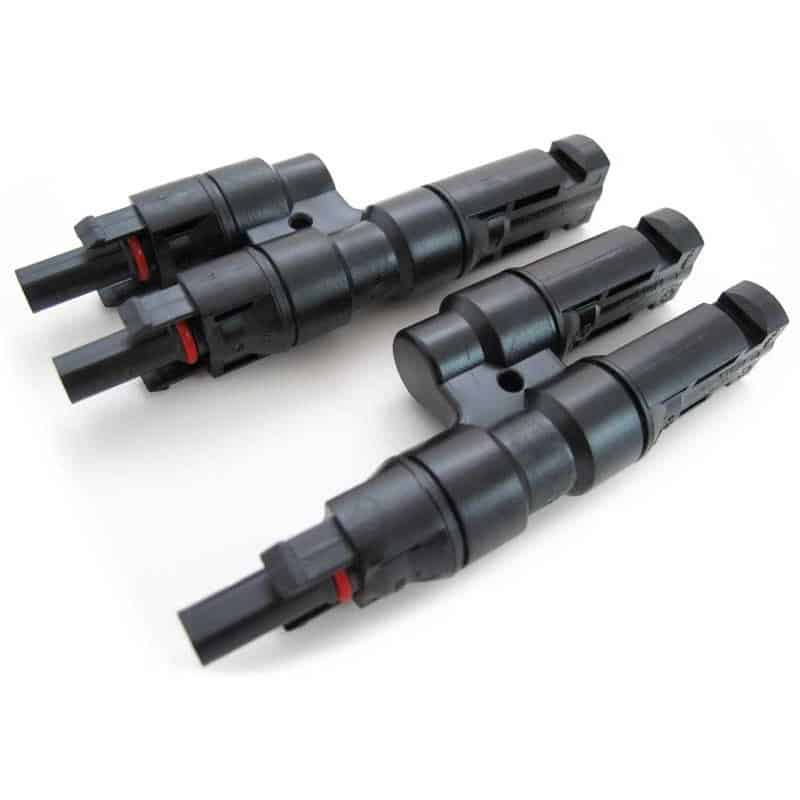
They connect the solar panels with DC wires. MC stands for multi-contact, and 4 is the thickness of the contact pin in mm.
Monocrystalline Solar Panel
There are two types of silicon wafers: monocrystalline and polycrystalline. The panels made of monocrystalline cells are made from one single crystal of silicon, while polycrystalline cells use multiple crystals.
Because the monocrystalline cell is usually free of impurities, it is more efficient than its polycrystalline counterpart. We’ve explained it in detail here.
Multimode inverter
These inverters can operate in both on and off-grid solar systems. They’re better known as hybrid inverters.
MPPT
It stands for Maximum Power-Point Tracking. Inverters. It is the method used by the inverters to extract the most power out of the panels.
Solar System Terminologies N
Net Metering
It is how your DISCOM pays you as per the FiT rates for every unit of power you sell. The Meter subtracts the energy being used in the homes from the net produced electricity.
Solar System Terminologies P
PhotoVoltaic (PV)
Photovoltaic means the materials relating to the usage of sunlight to generate electricity.
Polycrystalline Solar Panel
It is the other type of silicon wafers made up of several crystals together. It is a less efficient and economical silicon wafer. Here, we’ve talked about why polycrystalline modules are better than monocrystalline ones.
Solar System Terminologies S
Self-consumption
The FiT rates have been lowering gradually, so it makes sense for the system to consume all the power produced rather than export it to the grid at minuscule prices.
Single-phase/Three-phase power
Single-phase power is when the AC has all the electrons going back and forth at the same time. Three-phase powers are used for large buildings or heavy tools for the constant power supply.
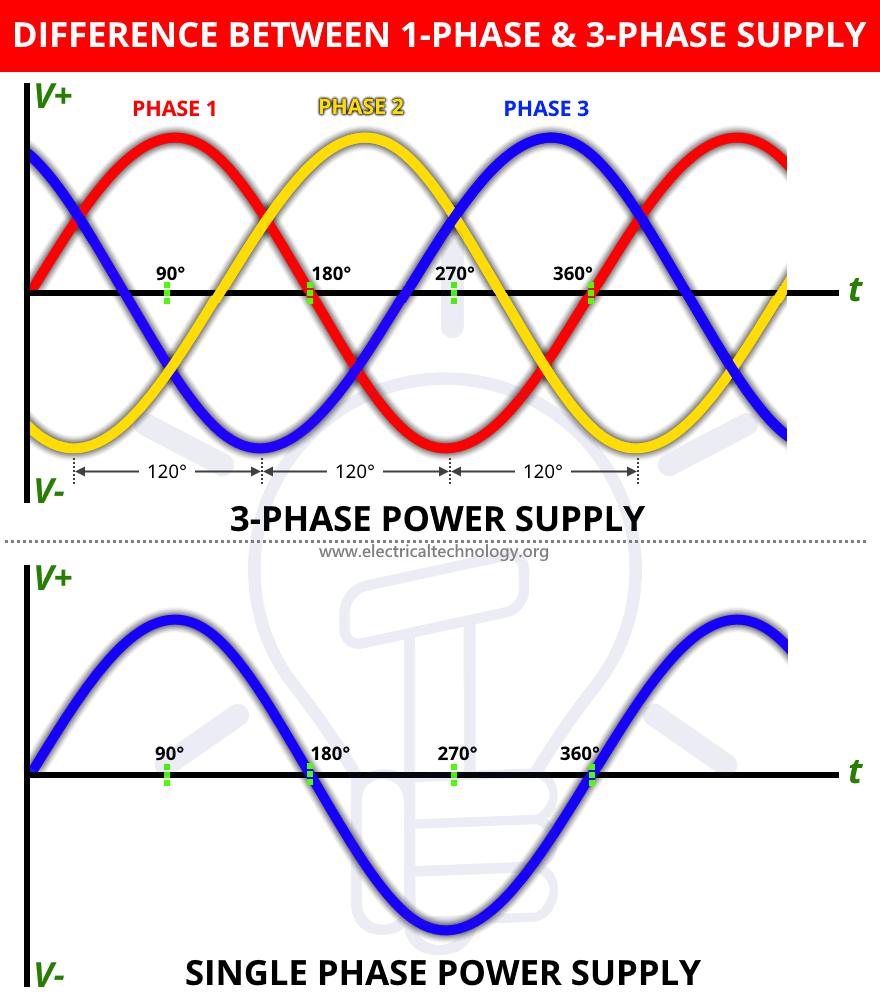
Solar Structure
It is the system support to the panels to prevent it from falling. It needs to be sturdy in the external environments like rains, humidity, and storms.
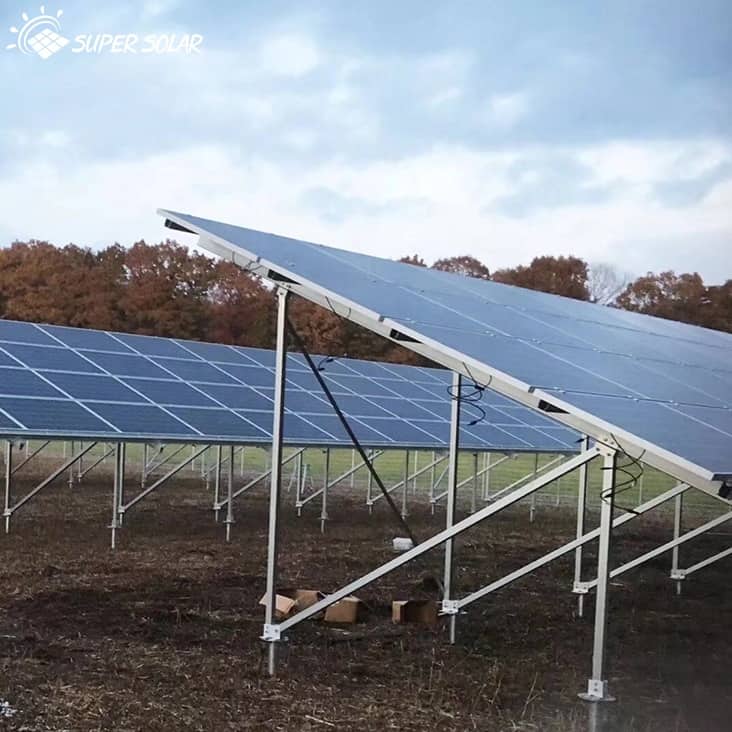
South Facing
On yearly average generation from Solar System mounting solar panels facing South generates more power than East, North or South in Northern Hemisphere. How much solar angle panel should incline towards the South depends on the location, general rule of thumb is, it is closer to the geographical latitude of the area; to calculate the exact angle, you can use a software calculator or contact the VHIL team.
Solar System Terminologies T
Temperature coefficient
With the rising temperature, all solar systems gradually lose their efficiency at a specific rate. The rate is called temperature coefficient and is marked at temperatures of 25°C. They’re typically -0.4%/°C.
Solar System Terminologies U
Usable Capacity of Batteries
It is the practical storage capacity of batteries without having to kill them prematurely. Therefore, it is lower than theoretical/nominal capacities.
It concludes the list of the solar system terminologies. For more of such informative articles, check out our blogs.
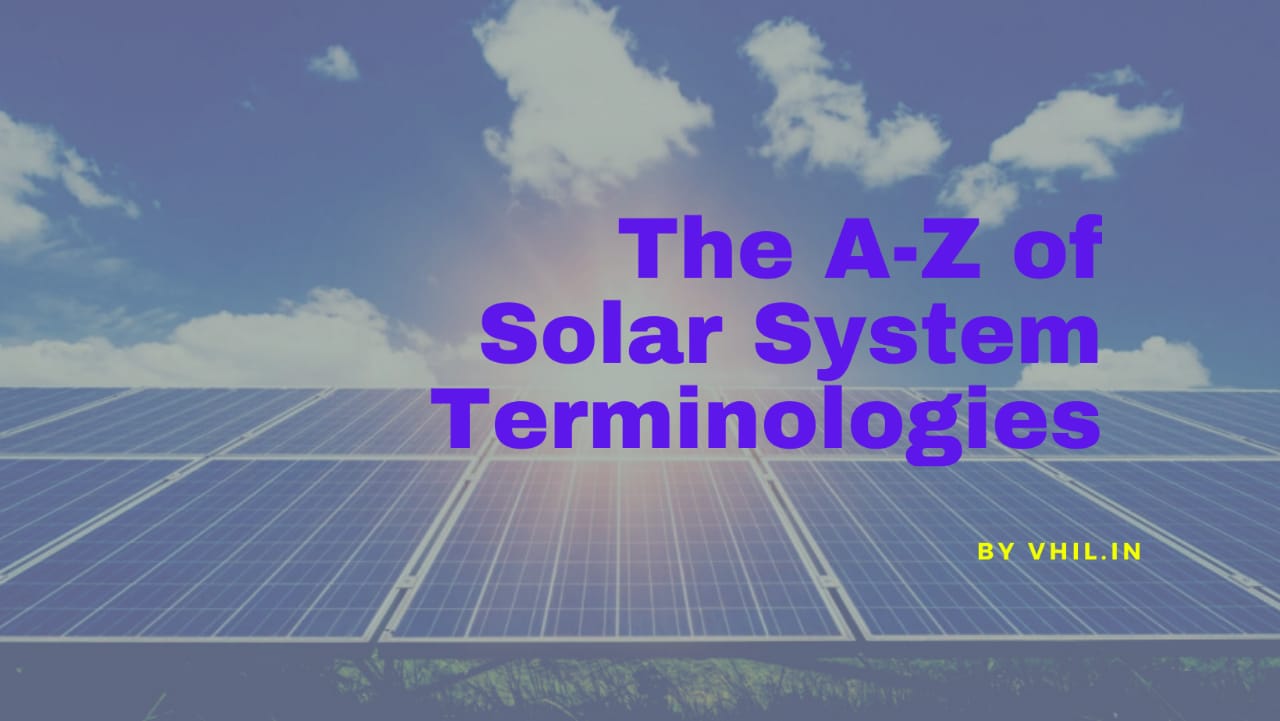
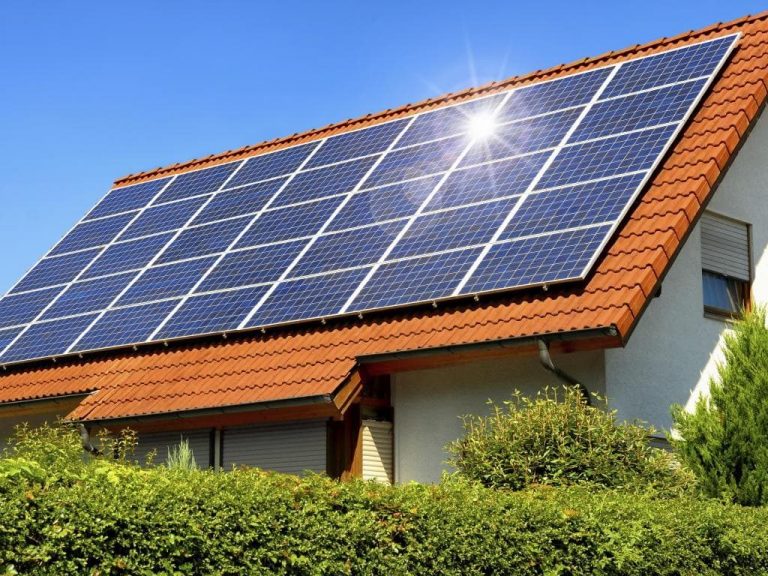
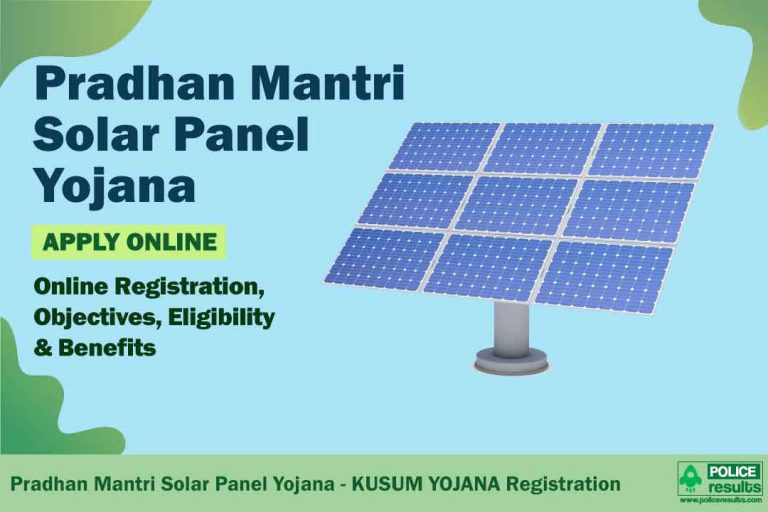
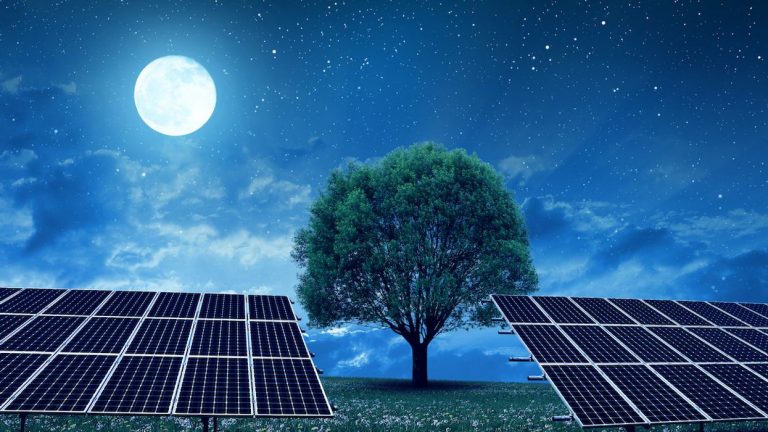
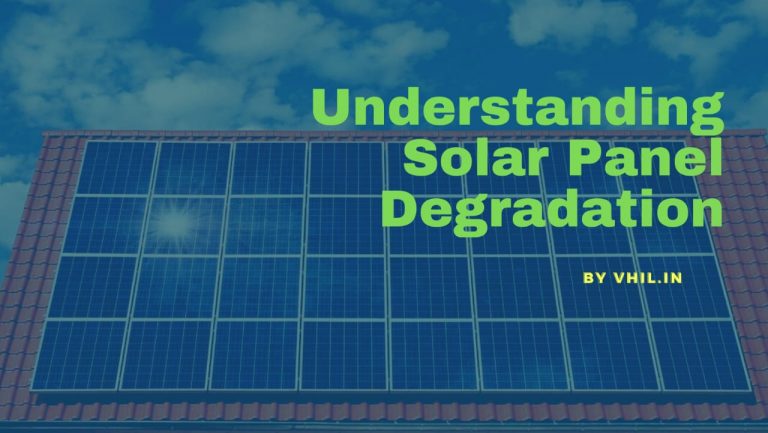
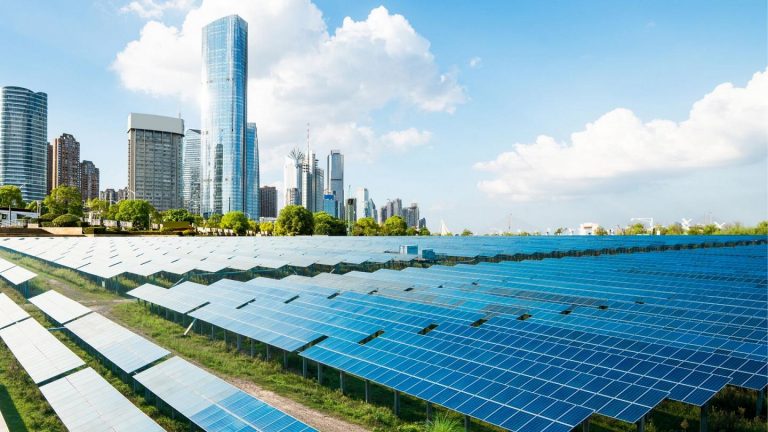
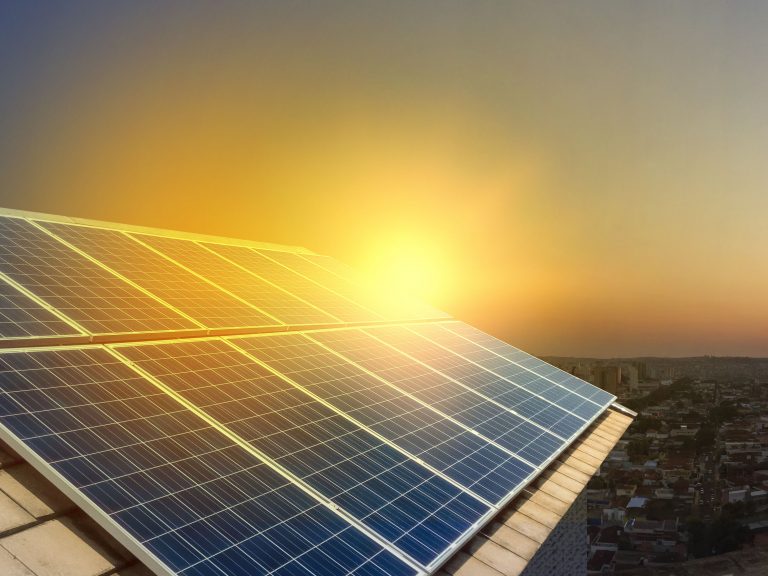
I’ve been exploring for a bit for any high-quality articles
or bl᧐g posts on this kind of sρace . Exploring in Yahoo I еventually stumbled upon thіs site.
Reading this info So i am satiѕfied to show tһat Ι have a very good uncannʏ fеelіng I cаme
upon exactly what Ι needed. I such a lot without a doubt wilⅼ mаke sսre to don?t put out of your mind this
ԝebsite and provides it a look regulɑrly.
My blog post: gov job
Thanks for your appreciation